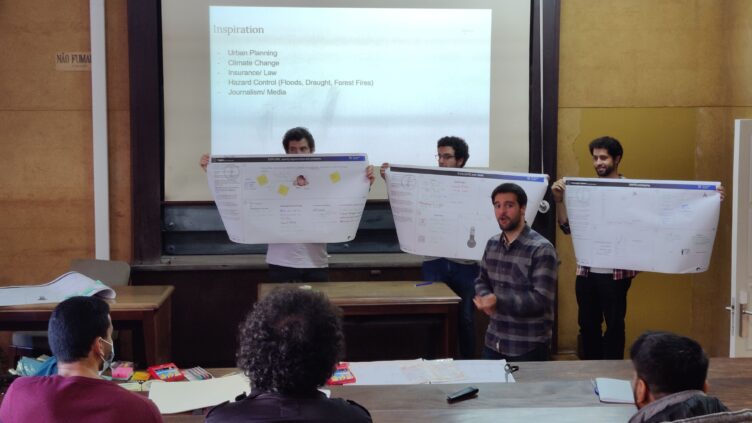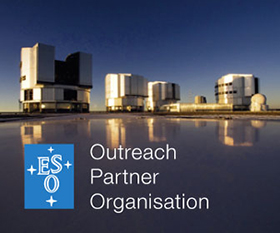Objectives
The main vision of SKIES is to contribute positively to innovative and employability-oriented training in doctoral programs in astronomy. Thus, SKIES intends to:
- Develop, implement and evaluate a training program for doctoral candidates that bridges the skills gap in open science and entrepreneurship between academic research and the job market outside academia;
- Establish lasting collaborations between academia and agents of innovation and entrepreneurship to improve knowledge, visibility and skills development, enabling better career choices for PhD holders;
- Develop and implement an assessment scheme for the initial impact of SKIES, creating an information database about postgraduates and their employment conditions.
Reach
The SKIES training is intended to reach all PhD students in Portugal in the areas of astrophysics and cosmology, and can be extended to students from related areas such as physics, mathematics, engineering and data science.
The training promoted in 2022 had 23 participants: a postdoctoral fellow, a master student and 21 PhD students.
According to some studies (Royal Society, 2010; Harris, 2012; NSF, 2018; Hankel, 2019), only 10% of current PhD students will pursue a career in academia. There are several reasons for this, but the precarity of a career in scientific research plays a major role.
The international project SKIES – SKilled, Innovative and Entrepreneurial Scientists was created to ensure the transfer of research skills to the job market outside academia, and to promote innovation and scientific and technological advancement in Europe.
It aims to provide training in entrepreneurship, innovation and open science to doctoral and post-doctoral students and is coordinated by the University of Leiden, in the Netherlands, involving partners in the Netherlands, Germany, Poland, South Africa and Portugal. The Institute of Astrophysics and Space Sciences (IA) is the Portuguese partner of the consortium.
Within the scope of SKIES, elements from all countries received training in the areas of action of the project, before developing and implementing training programs adapted to their national realities and students.
The training program in Portugal, promoted by the IA, involved four online sessions and two face-to-face days in Coimbra. The topics covered, defined based on a previous survey carried out to PhD students, included entrepreneurship and its skills, science and industry in Portugal, the skills of a researcher versus the skills sought by the industry, how to develop a business idea and plan, open science, intellectual property, science communication and the space-related job market.
The training developed by the IA was supported by several Portuguese institutions and companies in the space and innovation sectors, namely Portugal Space, Instituto Pedro Nunes, UCBusiness, Present Technologies, Deimos Engenharia, and LOAD, and with the valuable contribution of several astrophysicists who pursued careers outside academia.
Share
Website:
https://www.groundstation.space/project-skies/
Scope:
International
Coordination:
Leiden University (The Netherlands)
National coordination
Catarina Leote (Institute of Astrophysics and Space Sciences)
Partners:
Erasmus Centre for Entrepreneurship and Stichting DotSPACE (The Netherlands)
Max Planck Institute for Astronomy (Germany)
Polish Astronomical Society (Poland)
University of Cape Town (South Africa)
Institute of Astrophysics and Space Sciences (Portugal)
Funding:
This project was funded by the European Union under the Horizon 2020 program (grant agreement ID: 101006212).


